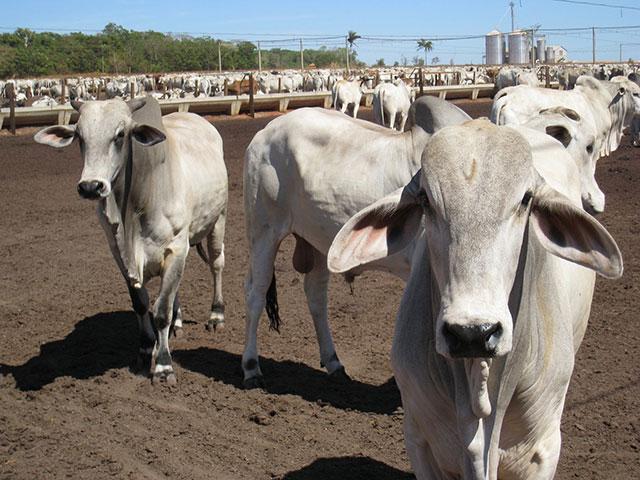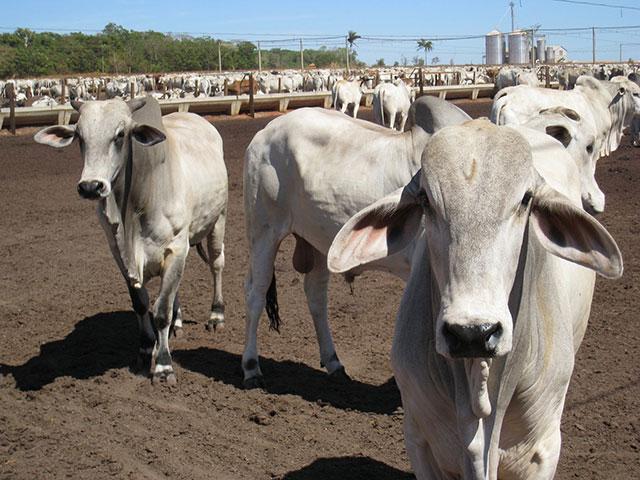Ag Policy Blog
Bipartisan Group of Lawmakers Oppose Allowing Beef Imports from Paraguay
In bipartisan and bicameral agreement, members of Congress do not want any beef imports from Paraguay.
Sens. Jon Tester, D-Mont., and Mike Rounds, R-S.D., introduced a bill Monday that would immediately halt the import of beef from Paraguay and create a new working group to examine both the risk to food safety and animal health by importing beef from Paraguay. A group of House members last week wrote Agriculture Secretary Tom Vilsack also opposing the move.
The U.S. has not allowed beef imports from Paraguay in more than 25 years.
USDA's Animal and Plant Health Inspection Service (APHIS), on Nov. 14 issued a final rule allowing the importation of fresh, chilled or frozen beef from Paraguay.
The controversy here is Paraguay's cattle industry was hit by foot and mouth disease at the very end of 2011. The country implemented multiple rounds of vaccinations in its herd and the country has not had any new cases of FMD since 2012. USDA, in its proposed rule last spring, cited the Paraguay has a good system for animal identification and traceability. Yet, APHIS also pointed to challenges with FMD in South America as well. "As long as FMD is endemic in certain areas of South America, there is a potential risk of reintroduction of the disease into the export area," APHIS stated.
APHIS in its rule stated it recognized FMD is a "high-risk disease" but APHIS stated imports could start from Paraguay "provided certain conditions are met."
P[L1] D[0x0] M[300x250] OOP[F] ADUNIT[] T[]
Paraguay is the world's eighth-largest exporter of beef with 70 countries open to buying beef from Paraguay, but 90% of its product goes to mainly to five countries: Chile, Russia, Israel, Taiwan and Brazil.
USDA estimated Paraguay could export volumes ranging from 3,250 metric tons to 6,500 metric tons of beef to the U.S. This would result in U.S. producer losses ranging from $12 million to $24 million. Yet, the analysis also indicated consumer gains of $14 million to $27 million. Thus, there is an "annual net social welfare gains of $1.6 million to $3 million." Some beef coming from Paraguay would likely displace beef imports from other countries.
As specific as that analysis was, USDA's rule did not include any modeling of the potential producer financial losses if FMD were to actually make it into the U.S. According to USMEF statistics, for the first nine months of the year, the U.S. exported $7.5 billion in beef. If FMD hit, a strong percentage of that would immediately be gone.
The National Cattlemen's Beef Association (NCBA) and U.S. Cattlemen's Association (USCA) have each been focused on blocking Paraguayan beef imports.
Last week, NCBA highlighted a letter led by 21 members of the House of Representatives opposing the Paraguay rule. That letter was led by Rep. Tracey Mann, R-Kansas, and Rep. Jim Costa, D-Calif., both members of the House Agriculture Committee.
"USDA relied on outdated site visits, irrelevant inspections, and inadequate data to overcome these prohibitions," the members wrote. "Paraguay knows what we all know -- the U.S. is the largest, most reliable consumer of beef in the world. We have that reputation because of the tireless work of beef producers to provide the safest and most efficient beef production system in the world. The U.S. should not expand our market to unsafe actors at the risk of the health and livelihood of U.S. agricultural producers and consumers."
Without some action, the USDA rule on Paraguay would go into effect on Dec. 14. Due to the lack of any enforceable "Product of USA" label, it's highly unlikely any meatpacker or retailer will be identifying that they are selling beef from Paraguay to consumers.
Chris Clayton can be reached at Chris.Clayton@dtn.com
Follow him on X, formerly known as Twitter, @ChrisClaytonDTN
(c) Copyright 2023 DTN, LLC. All rights reserved.






Comments
To comment, please Log In or Join our Community .